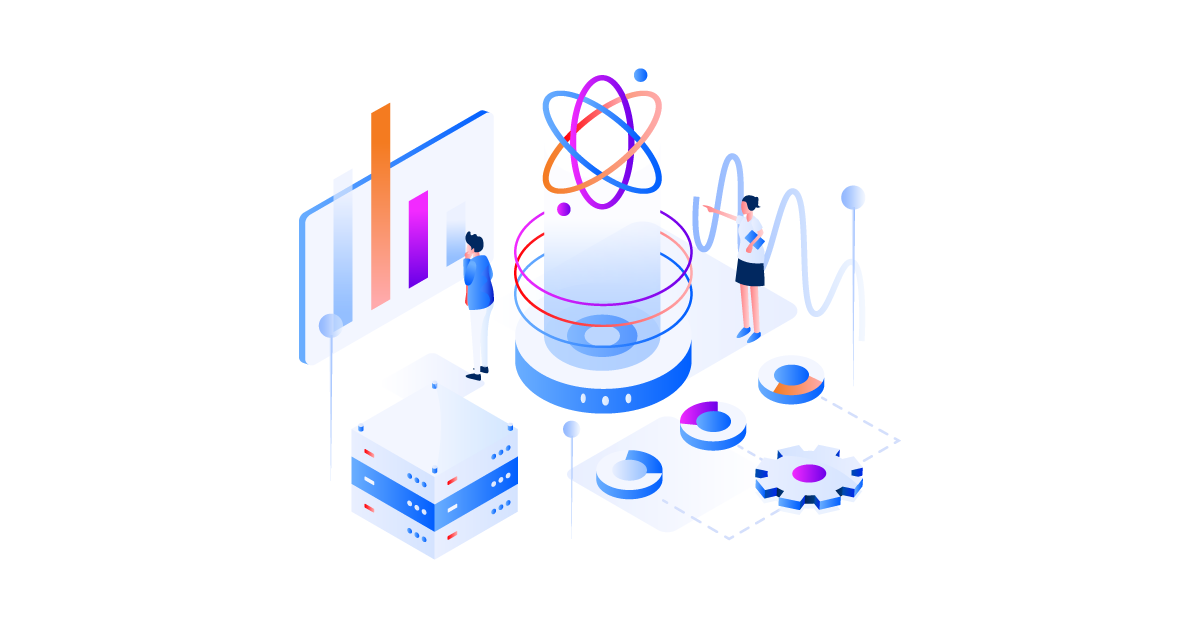Digitalization is multiplying, making data the most prized asset in the world. Organizations are strategically moving towards insight-driven models where business decisions, process enhancement, and technology investments are handled with the knowledge gained from data. Big budgets are planned to make use of abundant data available, and this spending will only increase over the years.
According to a recent IDC report, it is estimated that by 2025 the Global Datasphere will grow to 175 zettabytes (175 trillion gigabytes). It also states that 60% of this data will be created and managed by businesses, driven by Artificial Intelligence (AI), Internet of Things (IoT), and Machine Learning (ML). AI and ML are gaining mainstream focus among many industries, and global spending is expected to grow to $57.6B by 2021.
How Data Engineering is helping businesses succeed?
Organizations often consider Data Science to be the only method to gain meaningful insights necessary to drive their business goals. However, the real potential lies within Data Engineering, which allows companies to build large maintainable data reservoirs. These design data processes are scalable and ensure relevant data is available for Data Science and Data Analytics to process complex statistical programs and algorithms to provide useful results. Only with reliable and accurate insights created from diverse sources can help data analytics harness the full power of data.
Today, AI and ML have become integral parts of organizations, helping them achieve higher operational efficiency, become agile, taper new market opportunities, launch new products with faster go-to-market, and provide higher customer satisfaction. But according to a survey done by MIT Tech Review, 48% of companies said that getting access to high quality and accurate data was the biggest obstacle in successfully implementing an AI program. To overcome this hurdle, businesses must focus on effective Data Engineering, which forms the basic building blocks for AI and ML.
Three advantages of effective Data Engineering:
1) Accelerates Data Science
2) Removes bottlenecks from Data Infrastructure
3) Democratizes data for Data Scientists and Data Analytics
Once organizations understand and internalize this, it is easy to see how the potential of Data Engineering is limitless.

How data engineering is helping businesses across industries
Industry influencers and other prominent stakeholders certainly agree that Data Engineering has become a big game-changer in most, if not all, types of modern industries over the last few years. As Data Engineering continues to permeate our day-to-day lives, there has been a significant shift from the hype surrounding it to finding real value in its use.
Manufacturing
Industry 4.0 is here, and the sooner organizations start their digital transformation, the better equipped they become to handle the evolving market conditions. What Industry 4.0 has brought is a significant shift in how manufacturing businesses are changing from being purely process-driven, to becoming data-driven. This essentially means that companies are either adding new digital components or updating their existing components with digital features. However, this creates a complex technology landscape where legacy systems have to interact with modern systems.
An effective Data Engineering solution can communicate and retrieve data from different systems, sort out critical data from a pool of data, and process them to be analyzed further. Data Engineering bridges the gap between Production, Research Development, Maintenance, and Data Science. Data Engineering can help in enhancing the critical aspects of manufacturing industry—production optimization, quality assurance, preventive maintenance, effective utilization of resources, and, ultimately, cost reduction.
Entertainment
Data has the power to make or break a business, and no one understands this better than Netflix. The incredibly successful data-driven company uses insights across its business functions to decide what new content to invest in and launch, enhance operational efficiency, and, most importantly, provide predictive recommendations for its global audience.
Netflix has also used its robust Data Engineering system to convert over 700 billion raw events into business insights, which is one primary reason why the company continues to be the market leader.
Retail
The retail industry is continuously trying to tap into new business opportunities by gaining insights from data sources across the physical and virtual ecosystems. To gain these business insights, data must be gathered from a large network (comprising of POS systems, e-commerce platforms, social media, mobile apps, supply chain systems, vendor management systems, inventory management systems, in-store sensors, cameras, and a growing list of new sources).
An effective Data Engineering solution can bring together massive sets of structured and unstructured data from entire value chain to provide trends, patterns, customer insights, and more. A retailer with stores across the globe and an omnichannel presence can harness data sources in innovative ways with Data Engineering to gain a detailed understanding of the market, the competition, and every step of the customer journey.
Healthcare
Leading healthcare giants are progressively investing in integrating ML into their core functions. However, they are focusing on setting up their data infrastructure by building Data Engineering platforms. The healthcare industry is looking to unlock value from data to gain knowledge into the patient, healthcare worker, and the healthcare system on a large scale.
Data Engineering brings together insights from electronic patient records and hospital data, as well as new advanced data sources like gene sequencing, sensors, and wearables. It offers them to Data Analytics to provide better medical treatment.
How Data Engineering is fueling the businesses of the future
To manage data at large scale and segregate business-critical data from the rest, organizations need a long-term data strategy plan to be future-ready with Data Engineering as a critical approach.
Data Engineering creates scalable data pipelines
Distributed data processing systems can help create reliable data pipelines with low level of network management to meet huge volumes and tap into increasing data sources in a growing ecosystem of touchpoints.
Data Engineering ensures that data is consistent, reliable, and reproducible
For data processing to be successful through the stages of ingestion, analytics, and insights, it is important that the data be compatible by ensuring it complies with the required formats and specifications. Data science can derive better insights from data by providing reliable and reproducible data.
Data Engineering helps ensure that processing latency is low
Most essential business insights are required to be in real-time to have an effective impact, be it with customer experience in the retail industry or predictive analysis in the financial sector. If the data being analyzed has a significant time delay, the insights can be less effective or completely ineffective.
Data Engineering optimizes infrastructure usage and computing resources
Using the right algorithm for data engineering can save a considerable amount of money spent on resources. This can provide significant savings to organizations and help them optimally utilize their technology landscape.
Businesses must design Data Engineering solutions that are unique to their needs and create customized frameworks rather than follow trends. At the same time, many new start-ups begin their data journeys with clearly defined data sets. In contrast, traditional organizations may have larger ones from legacy systems and data sets from new sources. It is important to understand that while the Data Engineering tools for a particular organization are zeroed, no general rule can be used. Only a comprehensive study of a company’s unique technology ecosystem and business needs can determine the type of Data Engineering systems that should be used.
Data Engineering solutions must also be flexible. How data is produced and consumed is constantly evolving, so Data Engineering solutions or frameworks must be flexible to accommodate future requirements. Guiding the movement in this direction is the shift from traditional Extract Transform and Load (ETL) methods of the data pipeline to more pliable patterns like ingesting, model, enhance, transform, and deliver. The latter provides more flexibility by decoupling Data Pipeline services.
Many experts focus on Data Engineering one step further by encouraging companies to adopt a ‘Data Engineering Culture’. This permanently recognizes the need for Data Engineering at all levels of an organization across functions and warns that business predictions will fail without effective Data Engineering and an appropriate ratio of Data Engineers to Data Scientists.
The sooner organizations push for Data Engineering Culture and create organizational alignment, the more equipped they will be for the future, to which data holds the key.
How TVS Next created a Data Engineering solution for one of India’s top utility companies
In the energy sector, large enterprises are turning real-time data to drive effective energy management. Energy corporations rely on data for efficient resource management, operational optimization, reduced costs, and increased customer satisfaction with better insights into supply and demand in real-time.
TVS Next helped one of India’s leading utility companies build a distributed computing engine for processing and querying data at scale. The solution provided the company with tools to visualize key performance indicators using real-time data. With effective Data Engineering, the client improved the customer experience rather than relying on complex algorithms to predict outcomes.
What are some of the achievements and challenges you have faced while planning a Data Engineering system for your organization? Share your story and get in touch with us here










